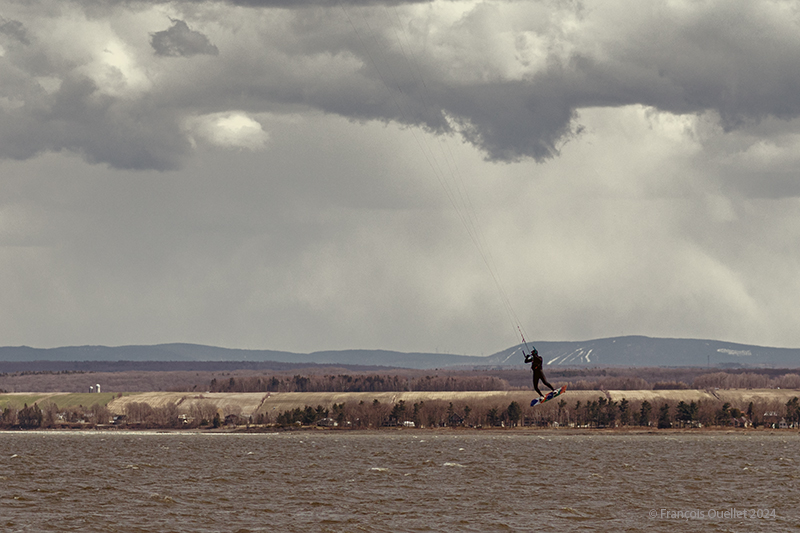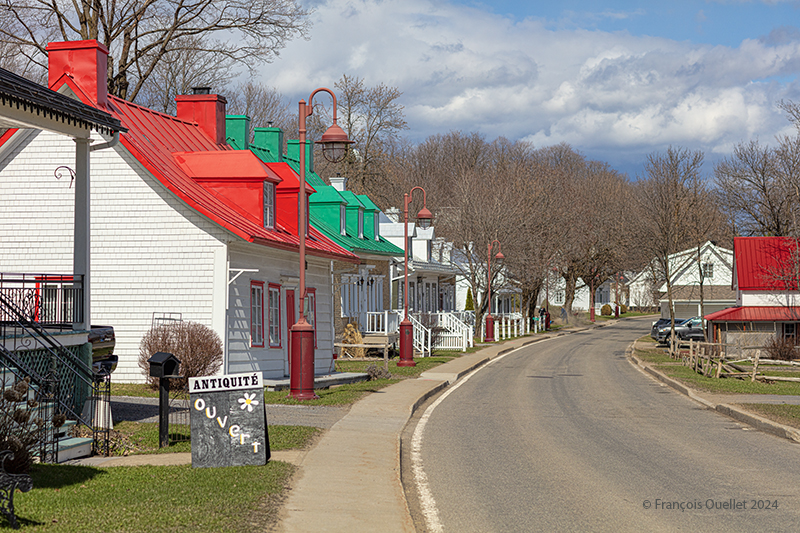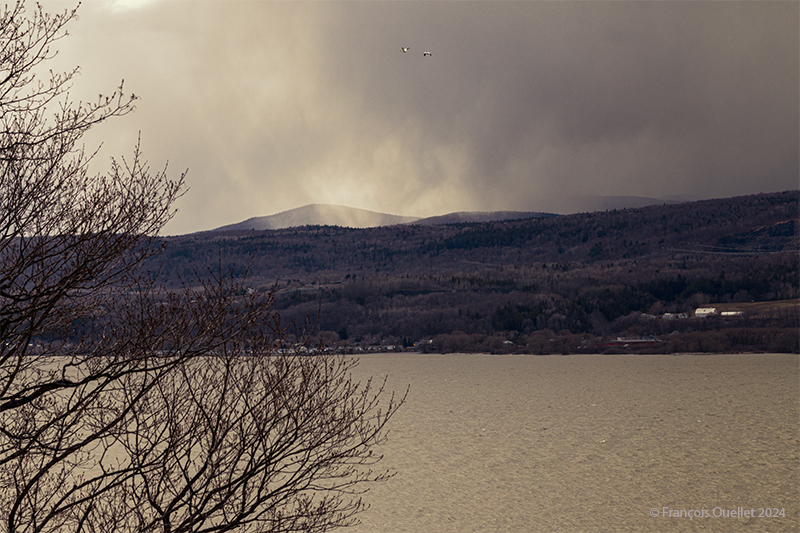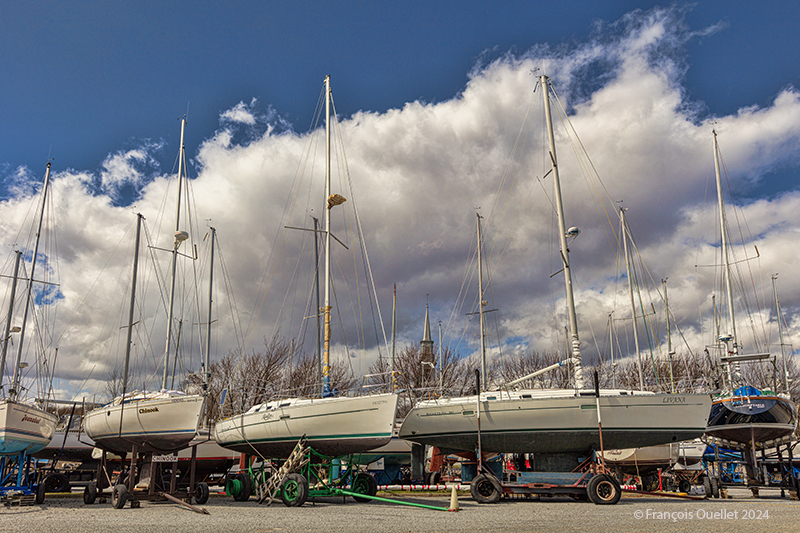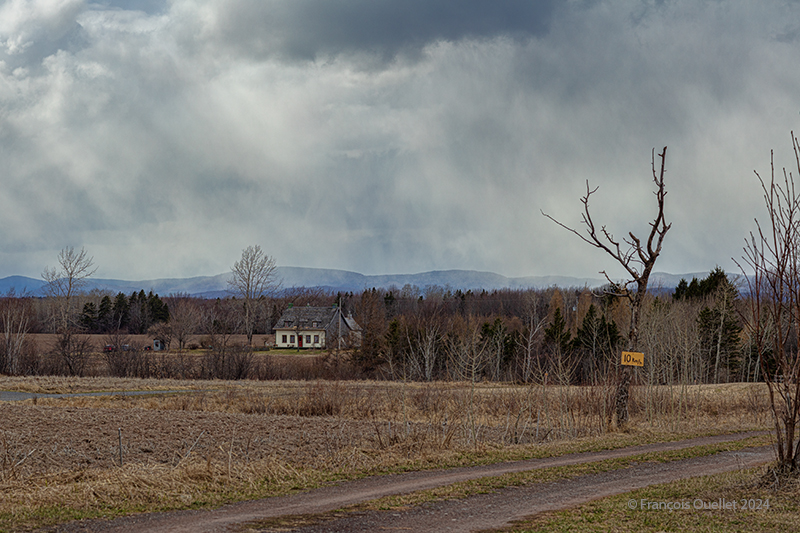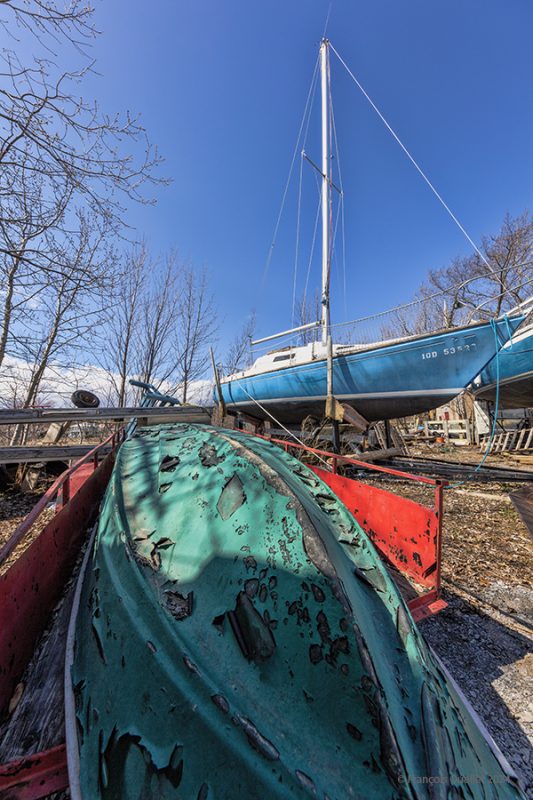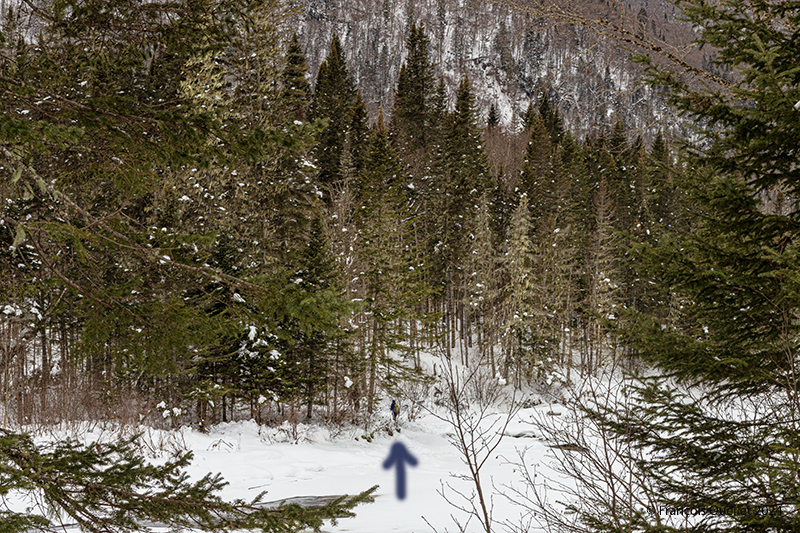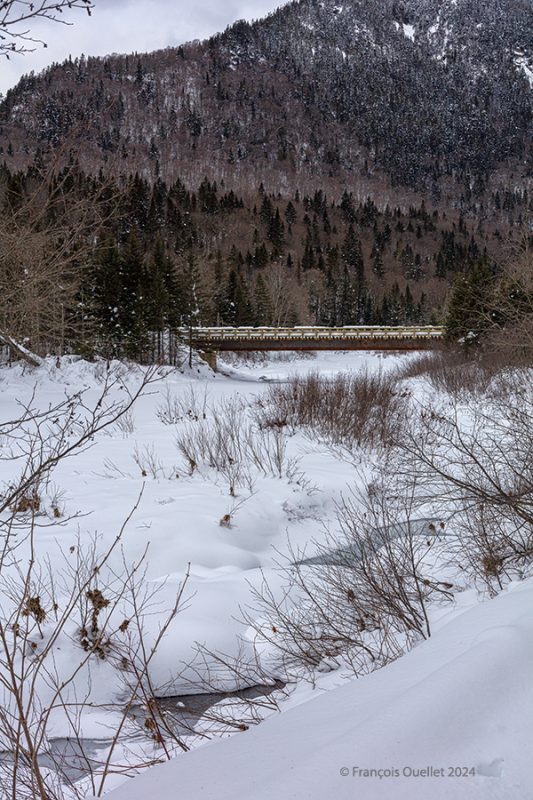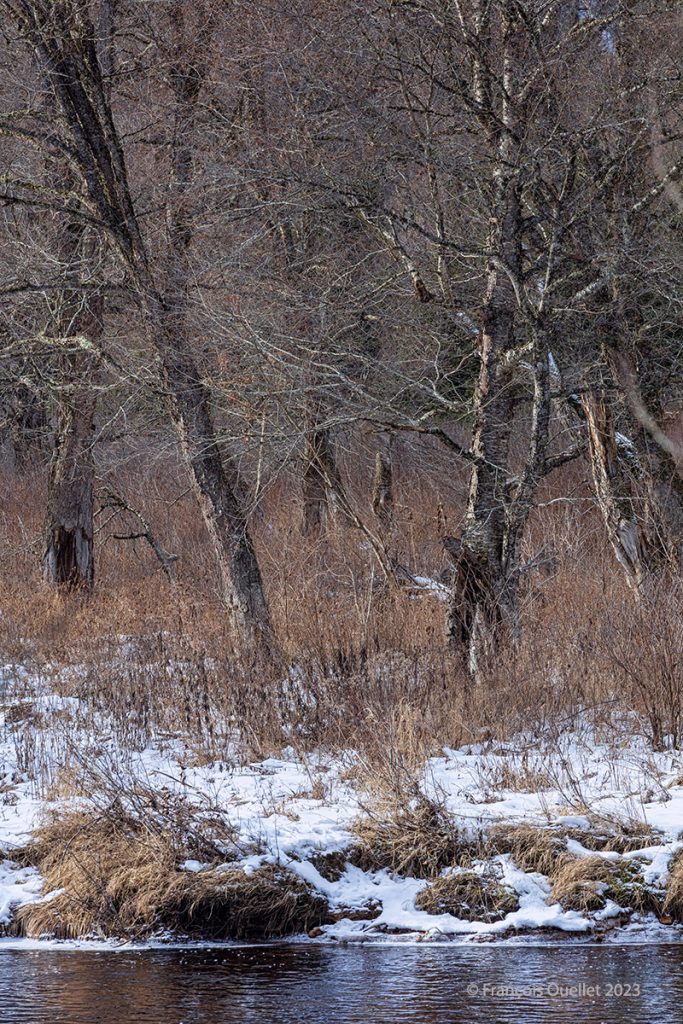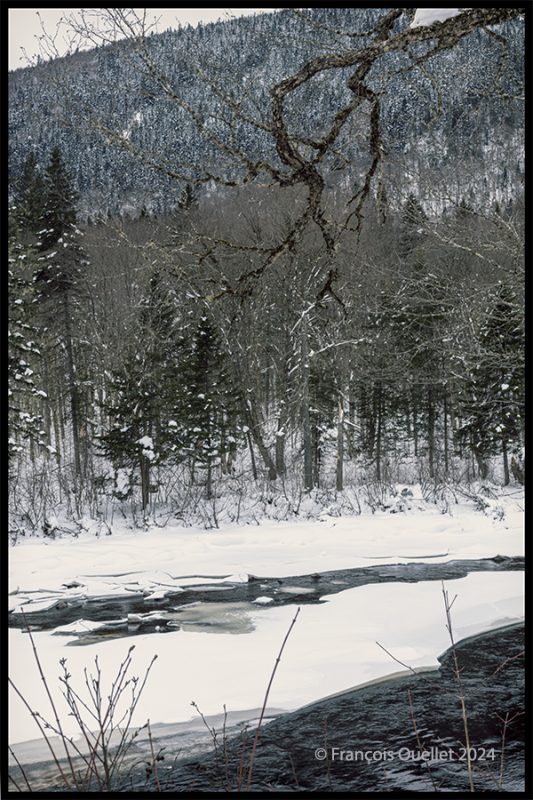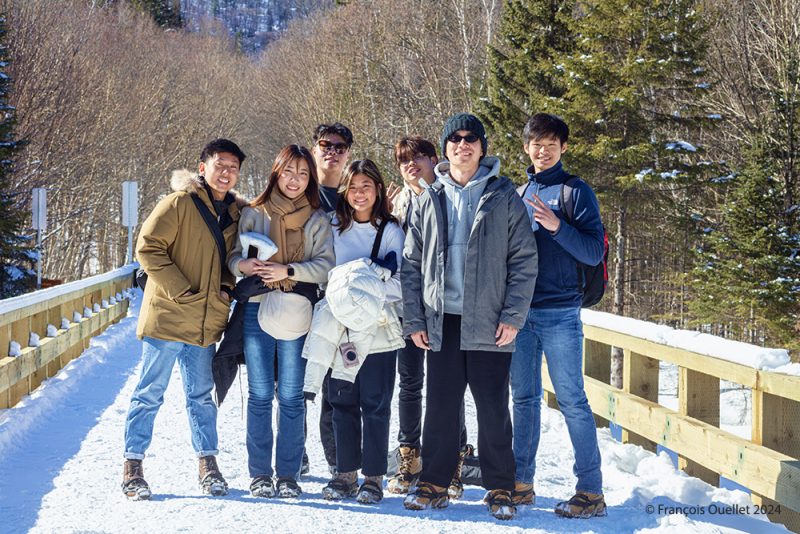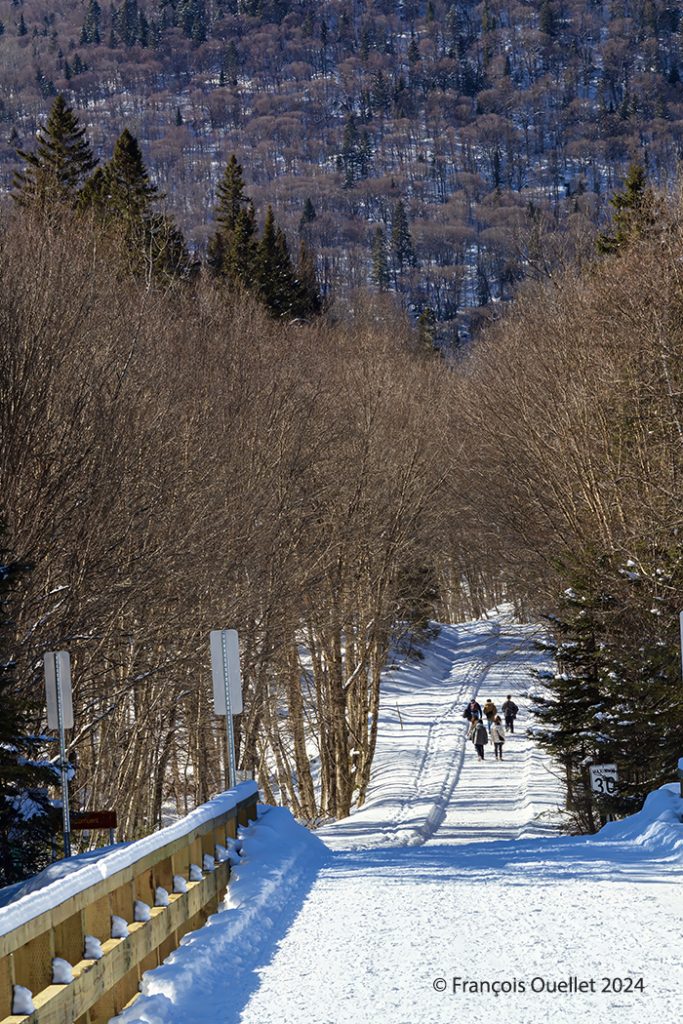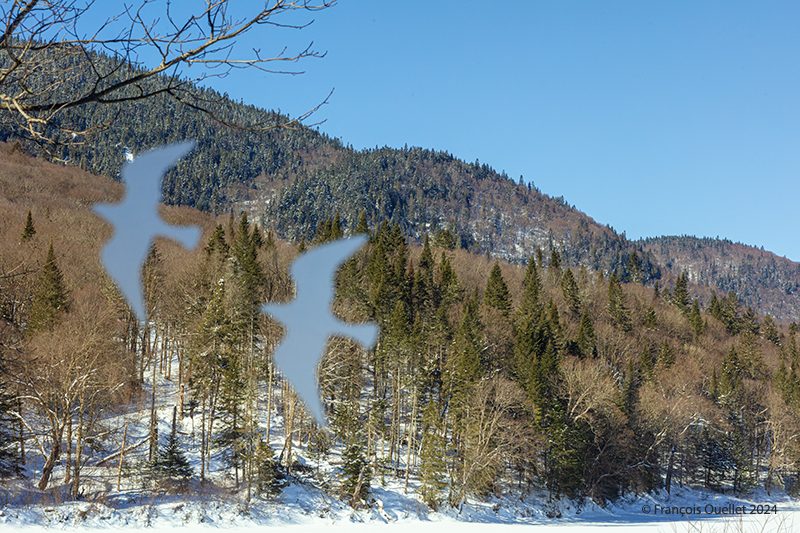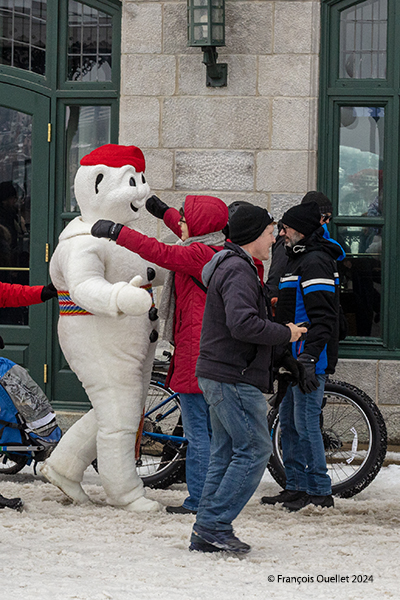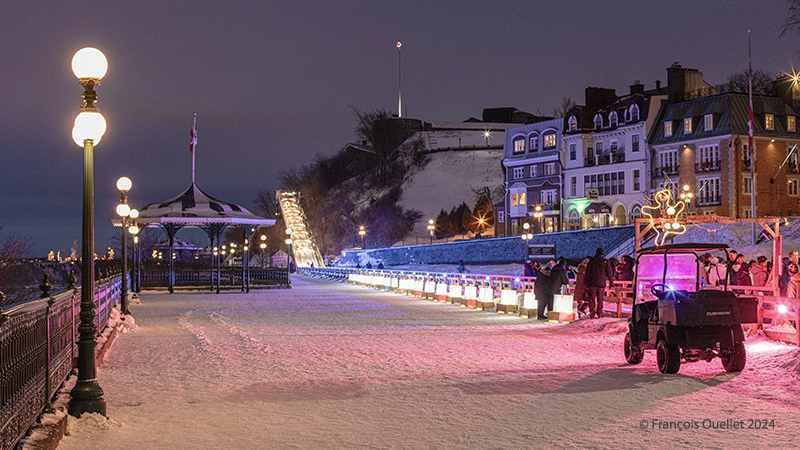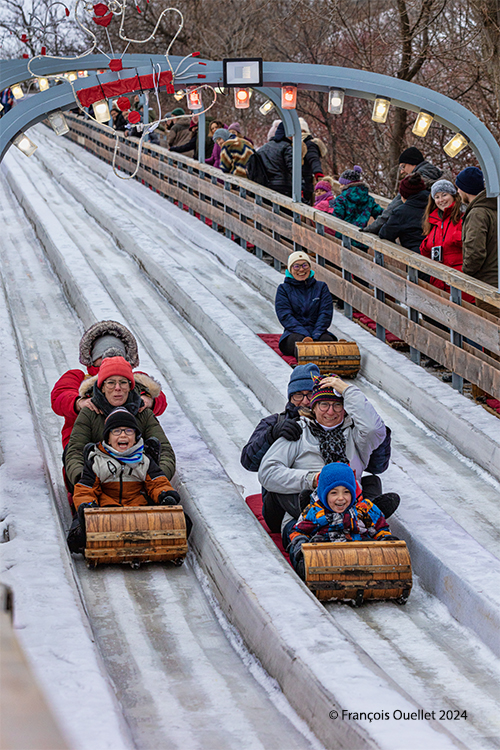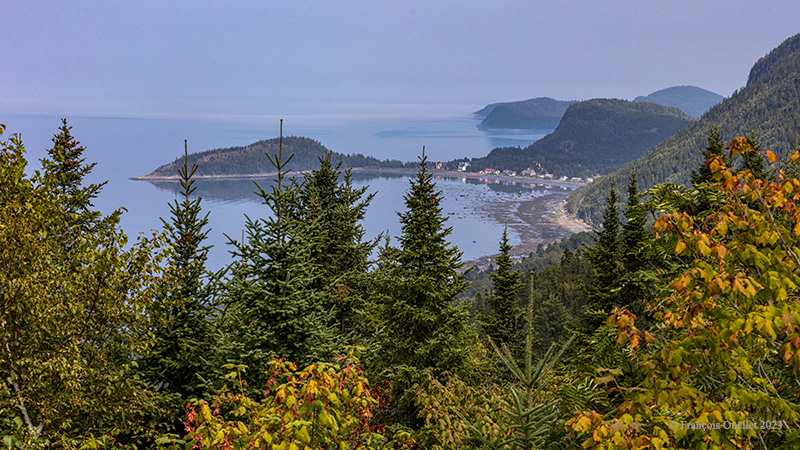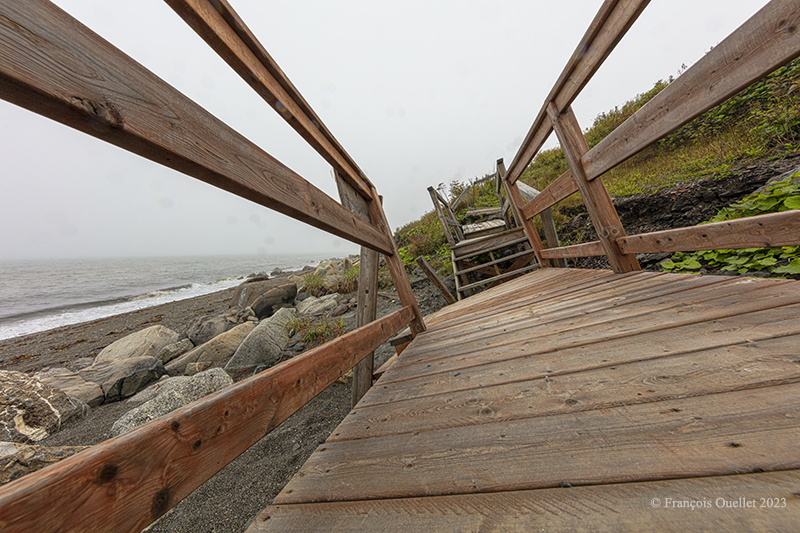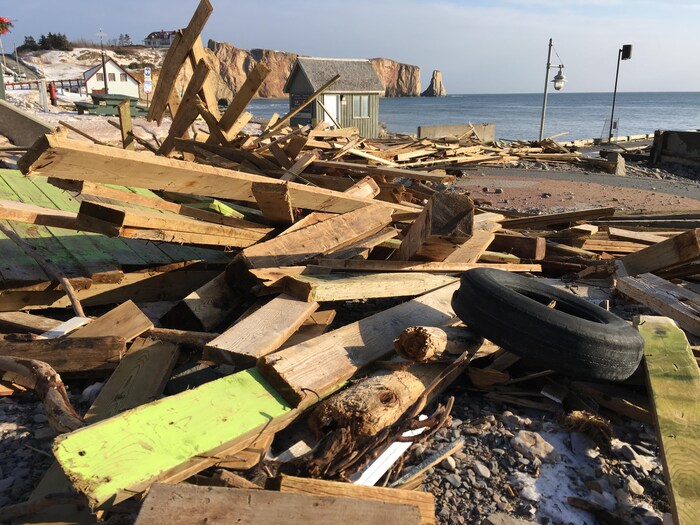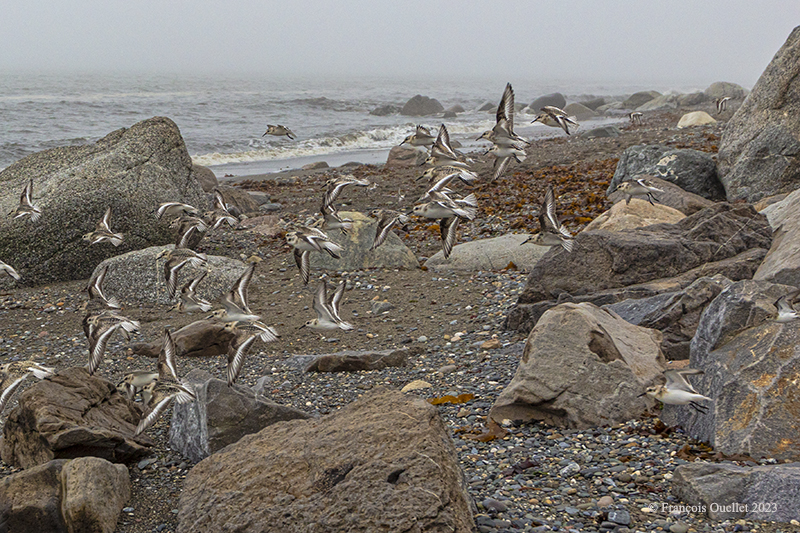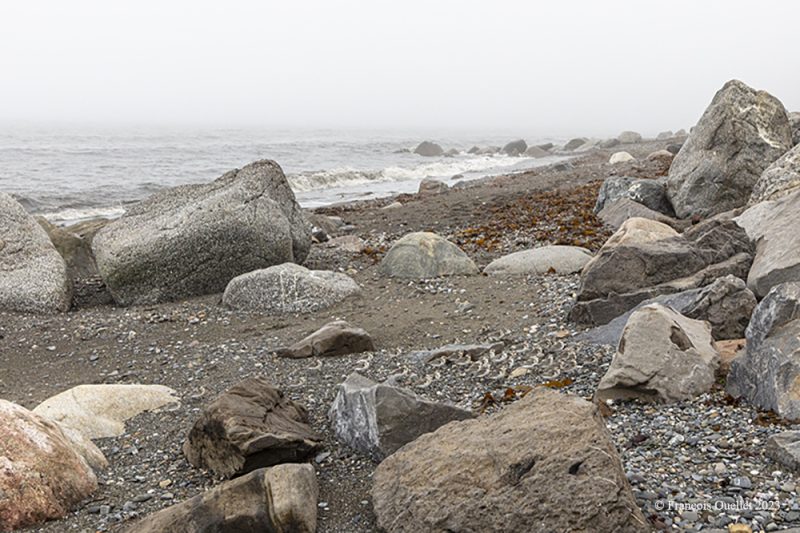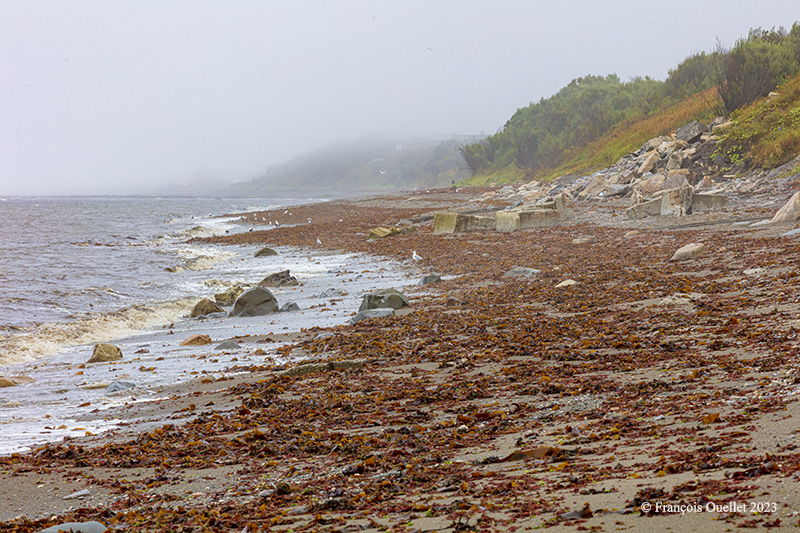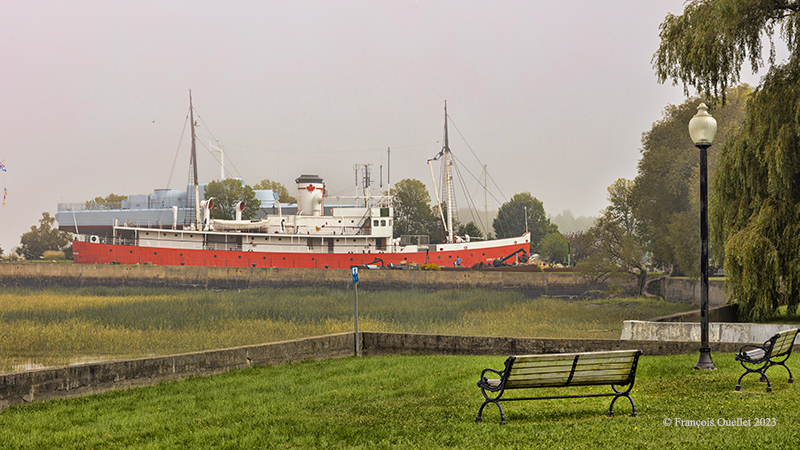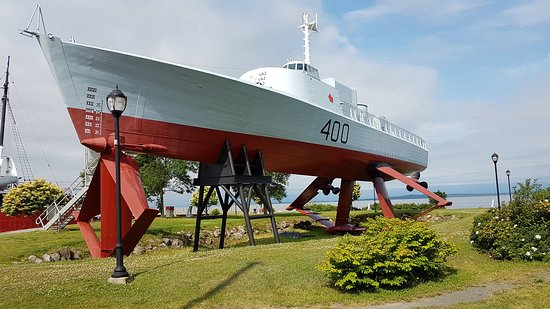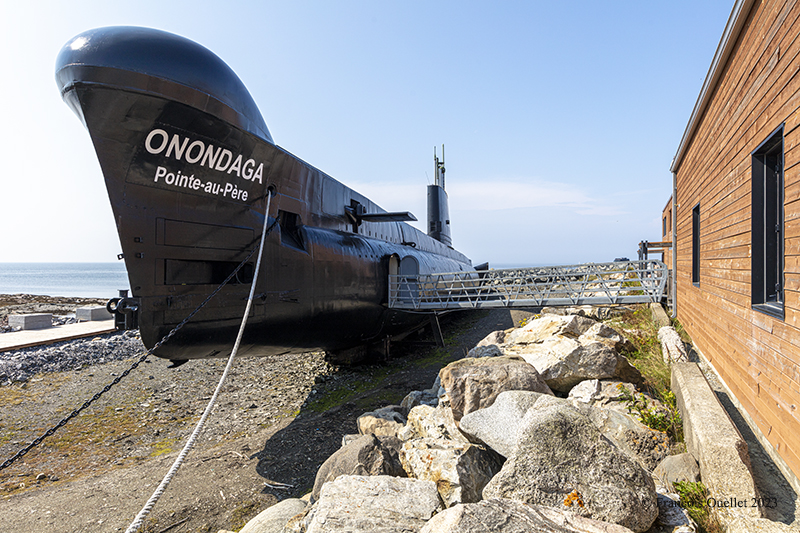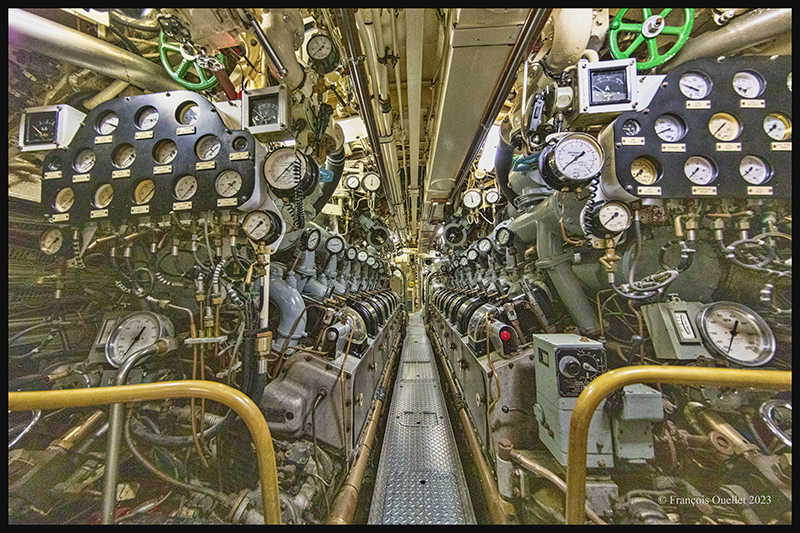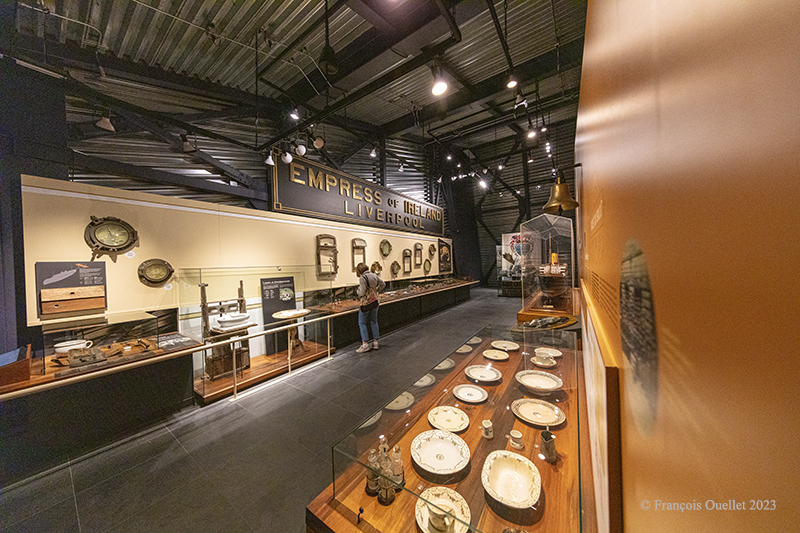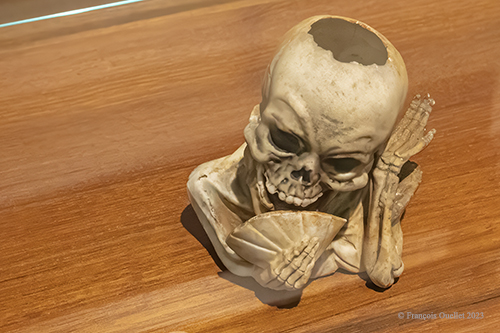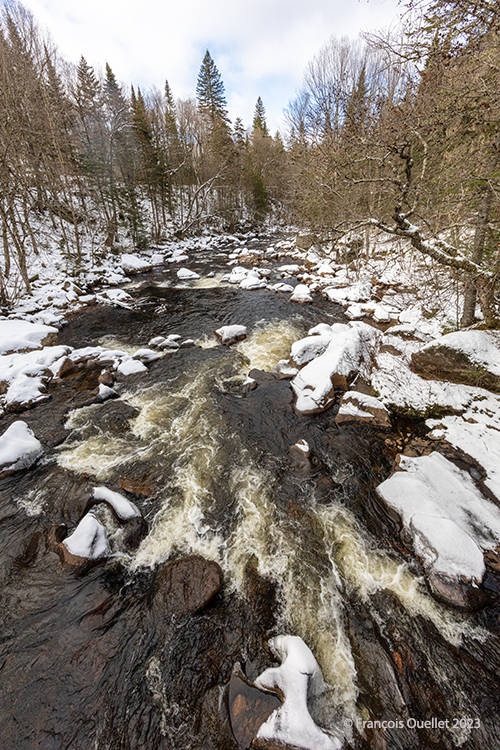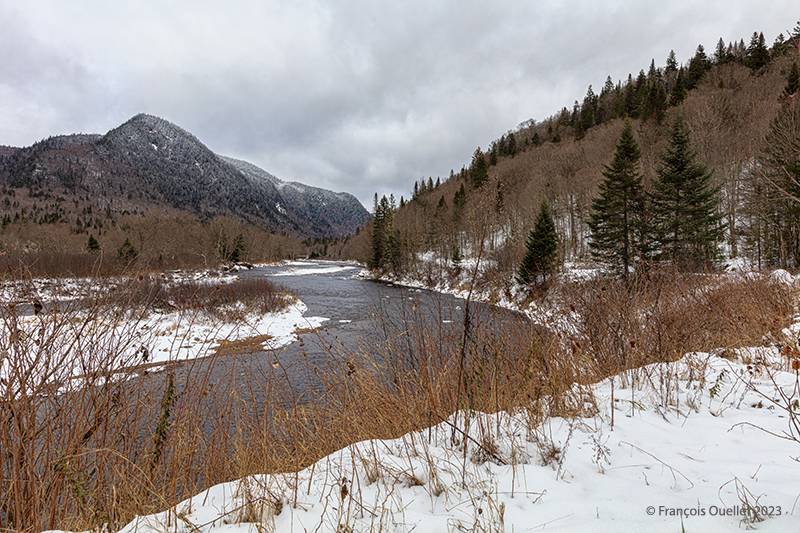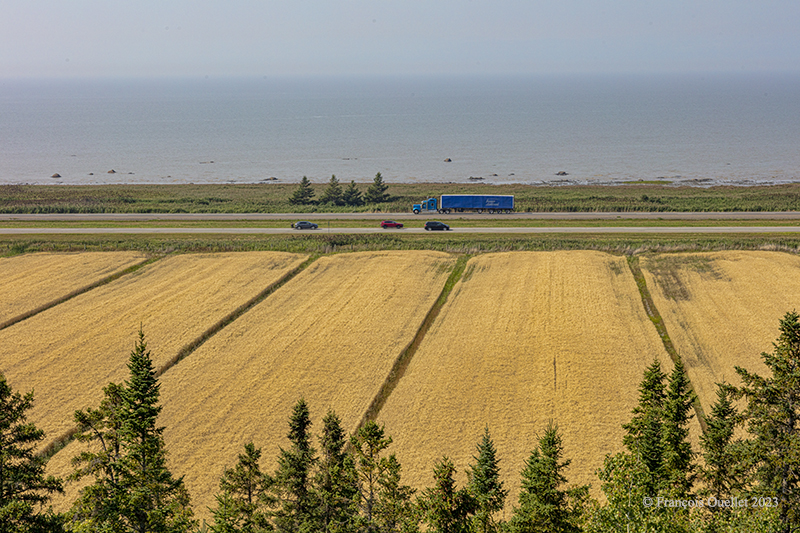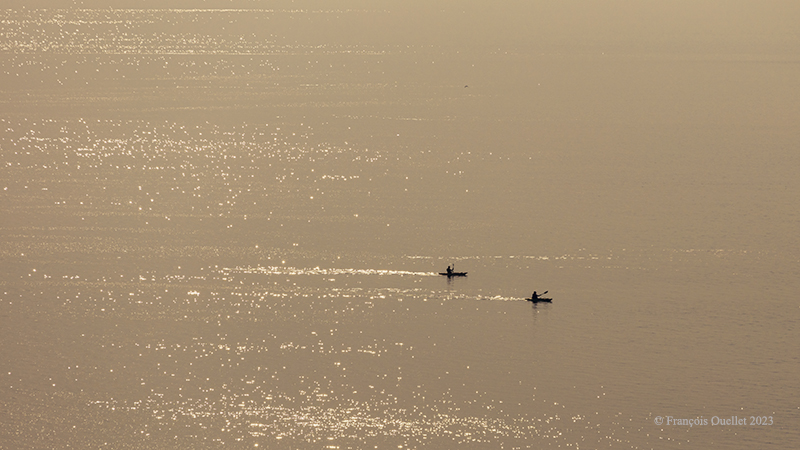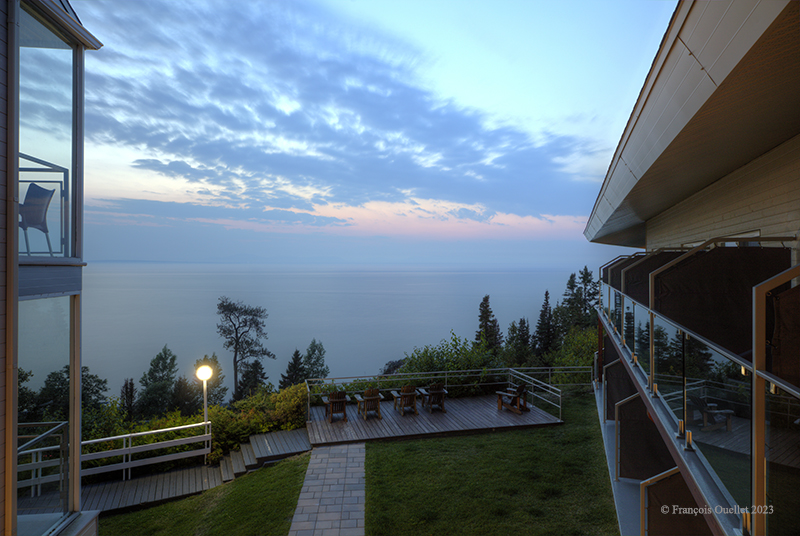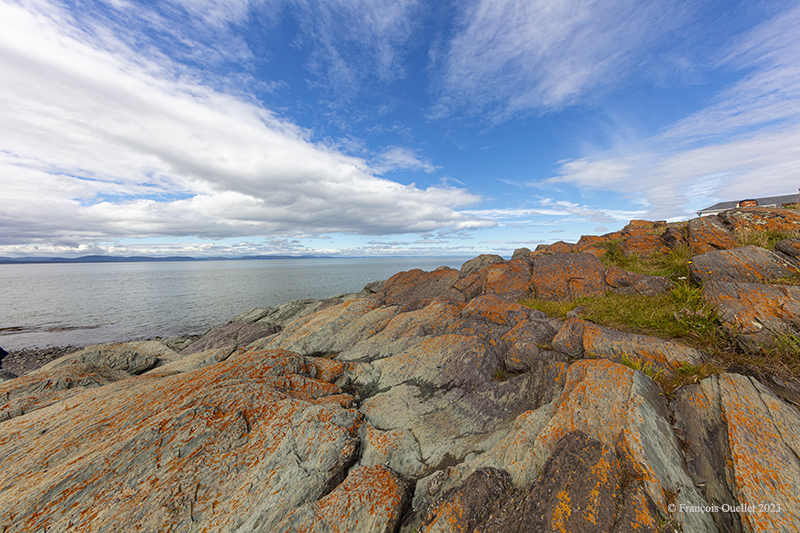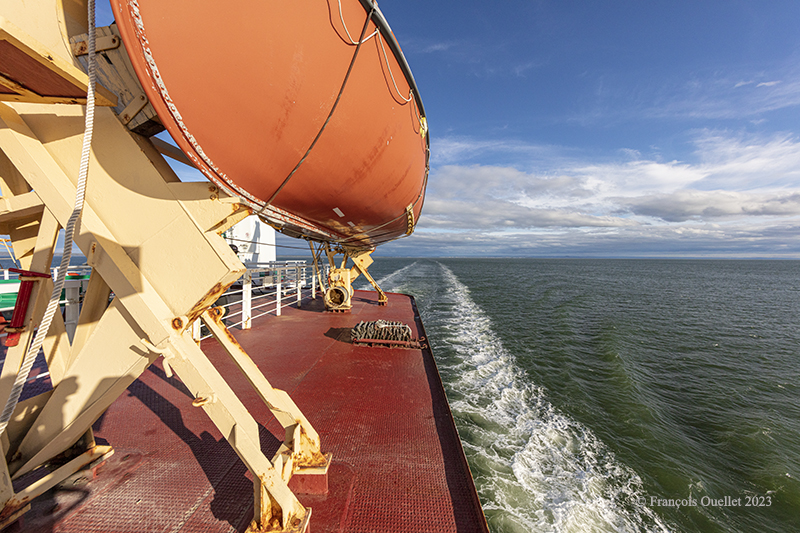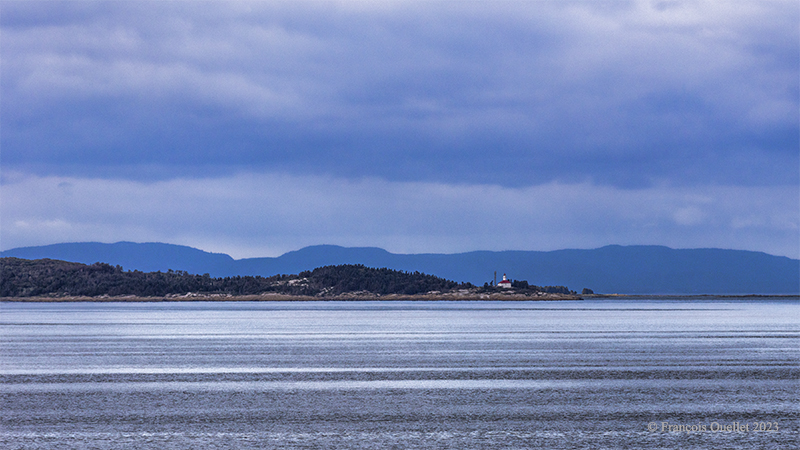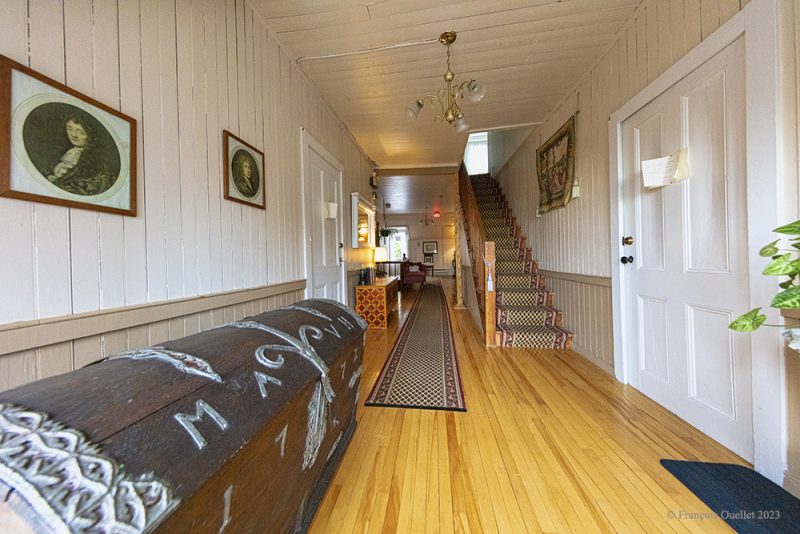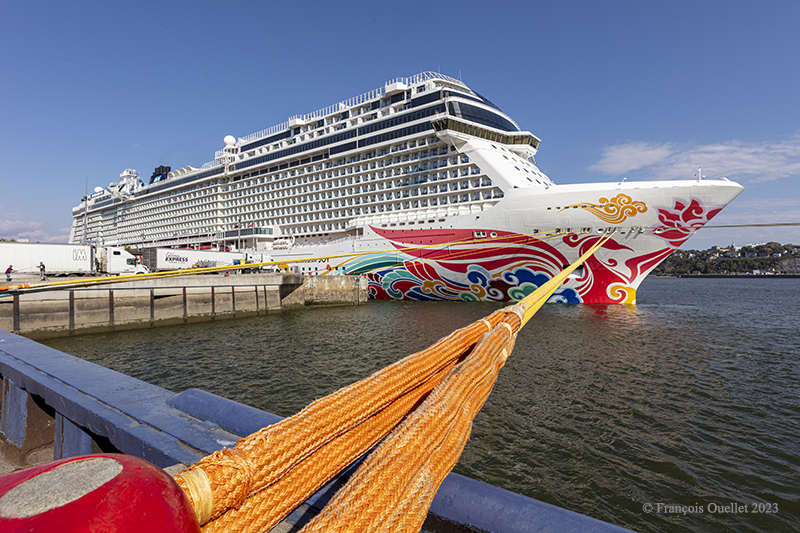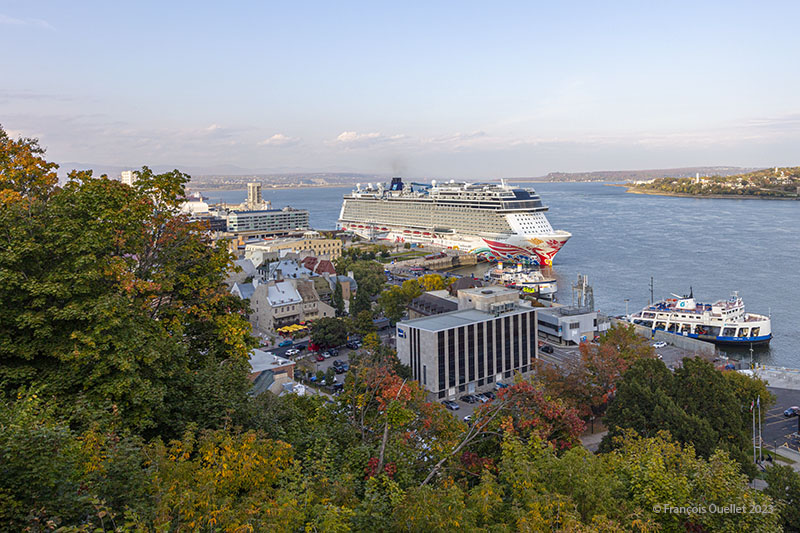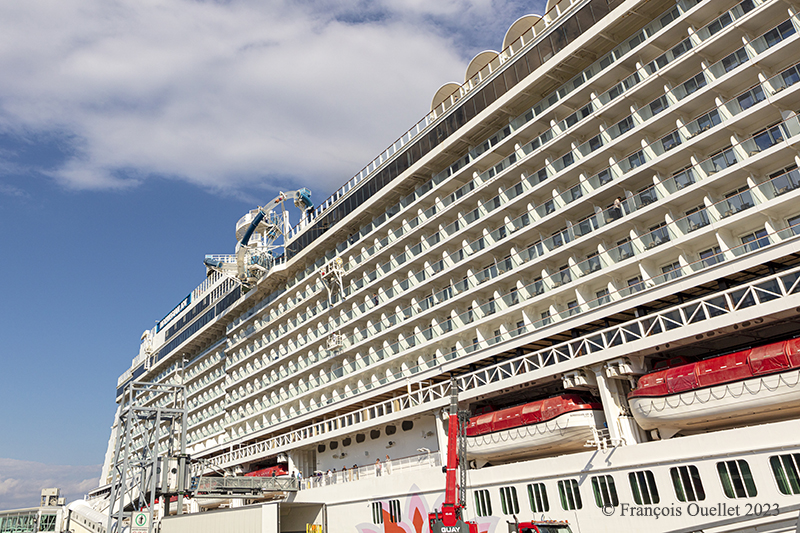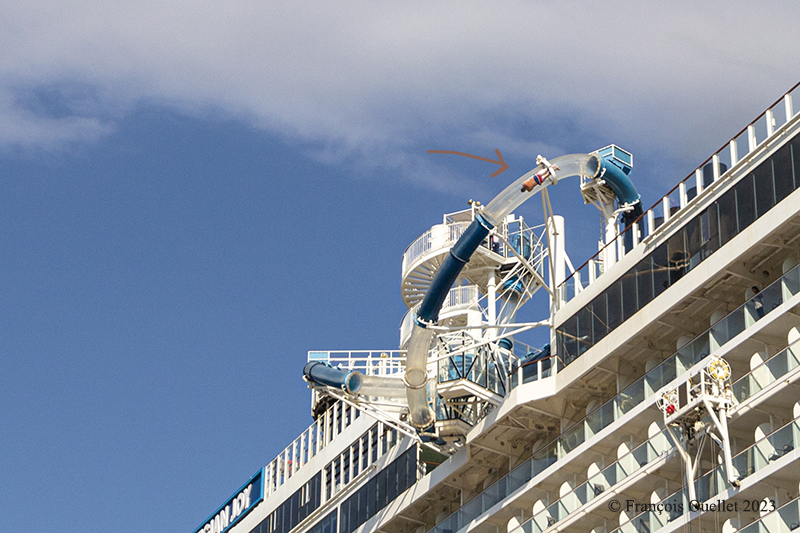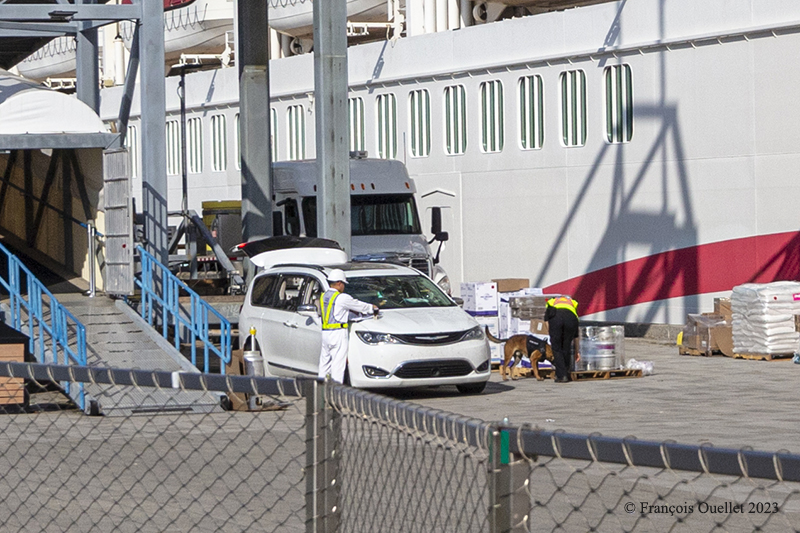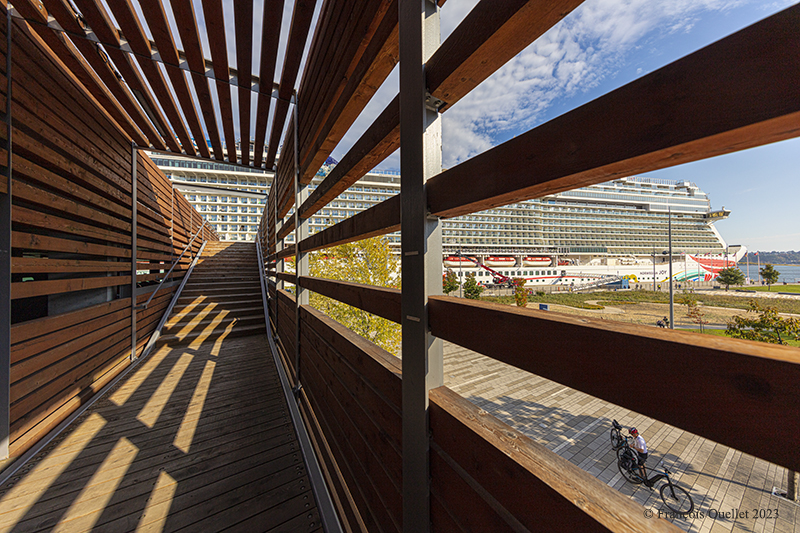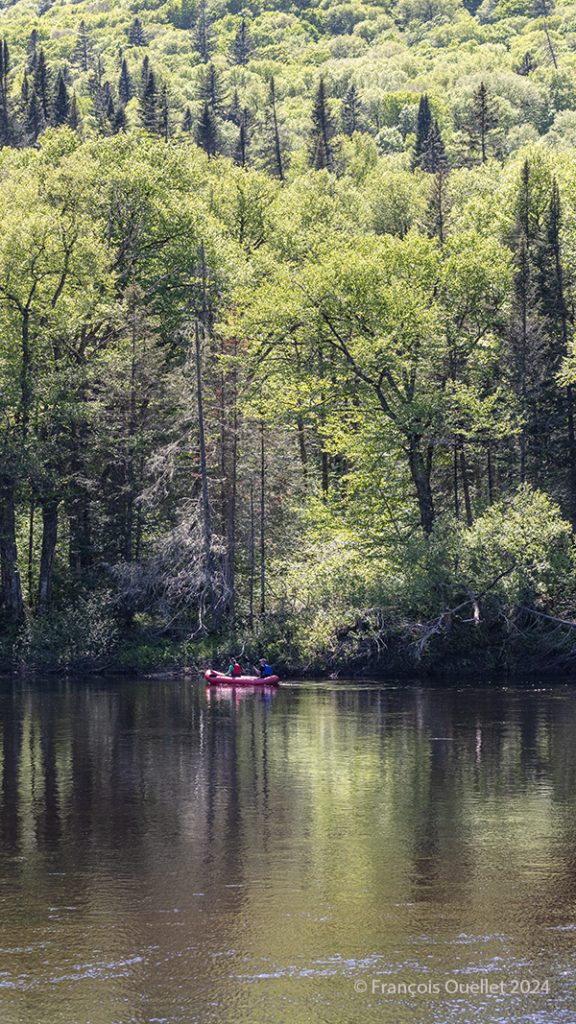
Normally, a 3:2 or 4:3 ratio is used to display in vertical mode. But the 16:9 aspect ratio of the photo above shows both the reverberations in the water and a significant portion of the landscape. So, whatever the conventions and what makes purists happy, we use what does justice to our first impression.
What caught my eye in this scene? The very wide range of green tones, the alternation of light and shade in the landscape and the reflections, the roundness of the deciduous trees and the tips of the conifers, the atmosphere of the place and, last but not least, the human presence. All this can be seen in a fraction of a second, and the shot is taken before the canoe enters the shaded area on the left.
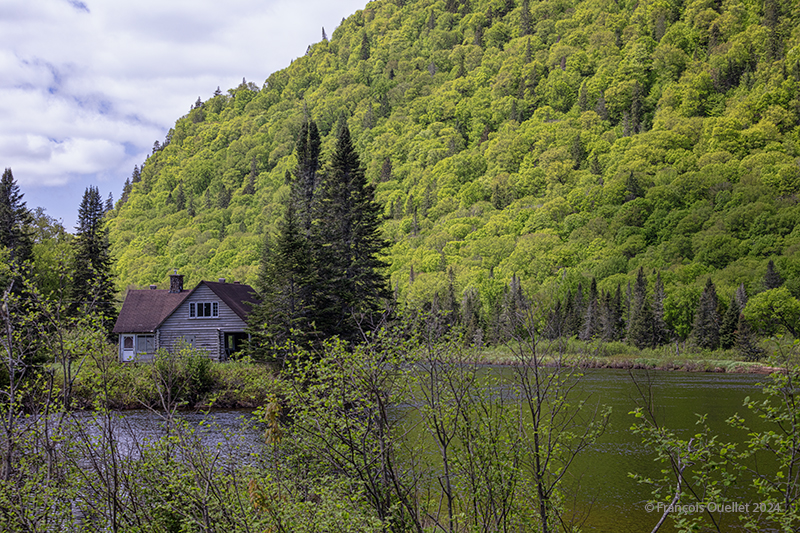
The photo above shows a historic chalet in Jacques-Cartier National Park in Spring. It’s no longer available for rent, but it’s a great asset for photography enthusiasts. At this location, paddleboarding is safe thanks to a very weak current.
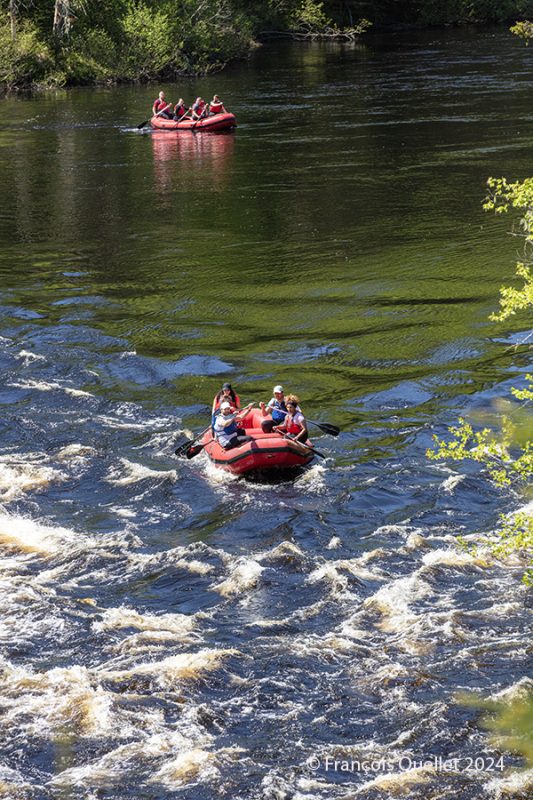
On the same day and on the same river, but a few kilometers upstream, a group of people attempt their first descent in an inflatable boat on a rougher stretch of water.
The first group takes the plunge, while the second watches, waiting its turn and trying to learn from the others’ mistakes. Occasionally, paddlers get stuck on top of a flat rock flush with the water, and have to use their initiative to free themselves and continue their journey. Sometimes canoeists find themselves in the water, and Sépaq staff have to help them out.
Click on the links for more photos and other articles about the province of Quebec.
